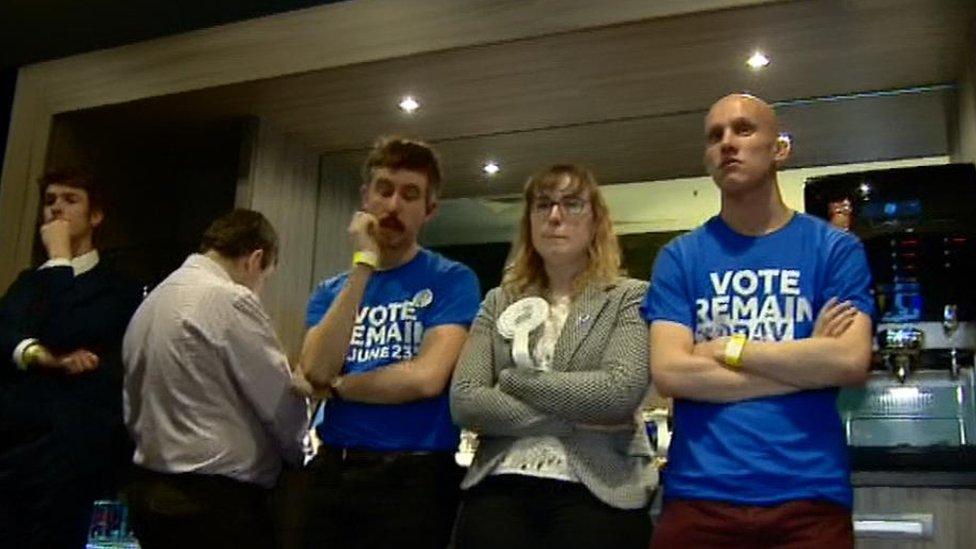Independent Scotland to have own currency when 'time right' - Sturgeon
- Published
- comments
FM Nicola Sturgeon said Scotland would continue to use the pound sterling while the Scottish pound is introduced in a "careful and responsible phased approach".
An independent Scotland would keep the pound and move to its own currency when the "time is right".
Nicola Sturgeon outlined the view at a briefing giving updated arguments for what could happen if the country voted for independence.
The first minister said a timetable for creating a Scottish currency would not be set, however, use of sterling would be as "short as practicable".
The UK government has said now is not the time to discuss independence.
A Scottish government paper has set out proposals for key issues, such as currency, trade and border crossings.
The prospectus, which was unveiled at a media briefing in Edinburgh, external, included details on how an independent Scotland would apply to become a member of the European Union.
It also outlined a redesign of the energy market and a migration policy to boost the working population.
At the Bute House briefing, Ms Sturgeon said a Scottish pound would be created after independence only "when the time is right".
This is in keeping with proposals made in 2018 by the SNP's Sustainable Growth Commission, which said six key tests would have to be passed before the country transitioned away from sterling. That move was forecast to take about a decade.
The "Building a new Scotland" paper cuts the number of tests to three with no prediction on the length of time it would take to fulfil them. The first minister said it would not be "responsible" to give a firm commitment on a timetable.
In the prospectus, an independent Scottish central bank would be created, along with a debt management office and a significantly strengthened Scottish Fiscal Commission to replicate the work of the UK Office for Budget Responsibility.
An independent Scotland would look to join the EU; remain within the Common Travel Area with the UK and Ireland and join the EU's Schengen free movement area.
Ms Sturgeon explains: "That means any talk of passports to visit relatives in England is utter nonsense. Free movement of people across our islands will continue as before.
"An independent Scotland will also be gaining free movement across 27 other countries."
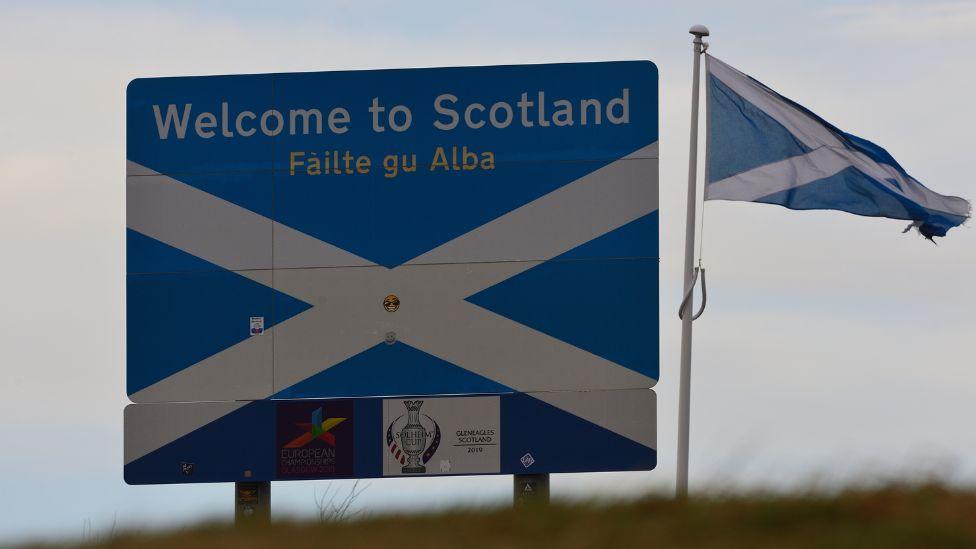
The independence prospectus says there would be some checks on goods at the Scottish border
The prospectus says there would be physical border checks on goods on the two main trunk routes between England and Scotland, while similar measures at rail freight terminals would be likely.
Ms Sturgeon said: "None of this, none of this is insurmountable, but it does require proper planning."
She went on to address the issue of an independent Scotland taking on UK debt.
The first minister explained that while there was no "legal" requirement to do so, Holyrood has a "moral" responsibility.
Ms Sturgeon told the press conference: "In light of that, and indeed our desire for a strong future partnership between Scottish and UK governments, we would seek a fair settlement on both debt and assets."
She also said that an independent Scotland could realise its "vast renewable energy potential" and "kickstart the inclusive growth" via the proposed Building a New Scotland Fund, a pot of up to £20bn generated through oil industry revenues.
"Without independence, Scotland will face austerity, trade barriers and "narrowed horizons as a result of Brexit," Ms Sturgeon said. "All of it exacerbated by increasingly dysfunctional Westminster decision-making."


Scotland has a head start if it is to become independent. It already has its own parliament, legal system and other key institutions.
Even so, designing the economic architecture of a sovereign state remains a colossal challenge.
And what is clear from this economic paper is that task would also be layered, complex and dynamic.
Consider some of the issues: setting up a central bank; transitioning to a new currency; applying to join the European Union; balancing the books.
Nicola Sturgeon is essentially saying that she cannot yet provide detailed answers to some questions about the process because of the unpredictable interaction between those different topics.
The first minister insists she is being as candid as possible, pointing to a 108-page document with 300 footnotes as evidence.
Opponents say that isn't good enough. They demand more detail, more answers, more explanation - now.
But, if voters in Scotland one day have their say on the subject again, in the end it won't be the judgment of any politician which matters - but that of the nation.

Scottish Conservative leader Douglas Ross said the paper "illustrates just how thin the economic case for independence is".
He added: "The SNP are trying to sell Scotland a pig in a poke. It's completely the wrong priority at the worst possible time for Scotland.
"Nicola Sturgeon should be using government resources to help struggling families instead of to push for another divisive and unwanted referendum."
Meanwhile, Scottish Labour called on the SNP to be honest about its proposals.
The party's finance spokesman Daniel Johnson said: "The SNP need to drop the spin and come clean with people about the catastrophic reality of their economic plans.
"Despite wasting 15 years in government peddling the same old agenda, they still can't answer even the most basic questions."
'They're asking for a yes or no answer to really complex question'
Scottish Liberal Democrats leader Alex Cole-Hamilton branded the plan a "recipe for years of chaos".
He accused Ms Sturgeon of making "the same pie-in-the-sky promises as the Brexiteers, threatening to cut Scotland off from its biggest trading partner".
"She refused to admit her proposals would leave Scotland outside both the UK and the EU for an untold number of years," he added.
"Nor can she tell the public how Scotland would build up the necessary foreign currency reserves for her plans to ditch the pound."
A UK government spokesman said: "People in Scotland want their governments to be focused on the issues that matter to them - growing our economy, ensuring our energy security, tackling the cost of living and supporting our friends in Ukraine against Russian aggression.
"This is simply not the time to be talking about another independence referendum."
The spokesman added that Scotland benefited from being part of a wider union, through initiatives like the Covid furlough scheme or the energy support package which has limited bill increases this winter.
'Indisputable mandate'
The paper is the third in a series, external, published as part of the Scottish government's plans to hold a referendum on 19 October next year.
In June Ms Sturgeon unveiled what she called a "refreshed" case for independence and said her government had an "indisputable mandate" for a second referendum.
The following month she launched a second paper which argued independence was the only way to end the "starker than ever" democratic deficit in Scotland.
The UK Supreme Court, which heard two days of submissions last week, is considering if Holyrood has the legal powers to press ahead with a referendum without consent from the UK government.
Scotland's lord advocate argued that such a vote would be advisory, and therefore would not have a legal effect on the Union.
The UK government argues the case is plainly about the constitution which is reserved to Westminster and holding a referendum is therefore beyond the powers of the Scottish Parliament.
- Published17 October 2022
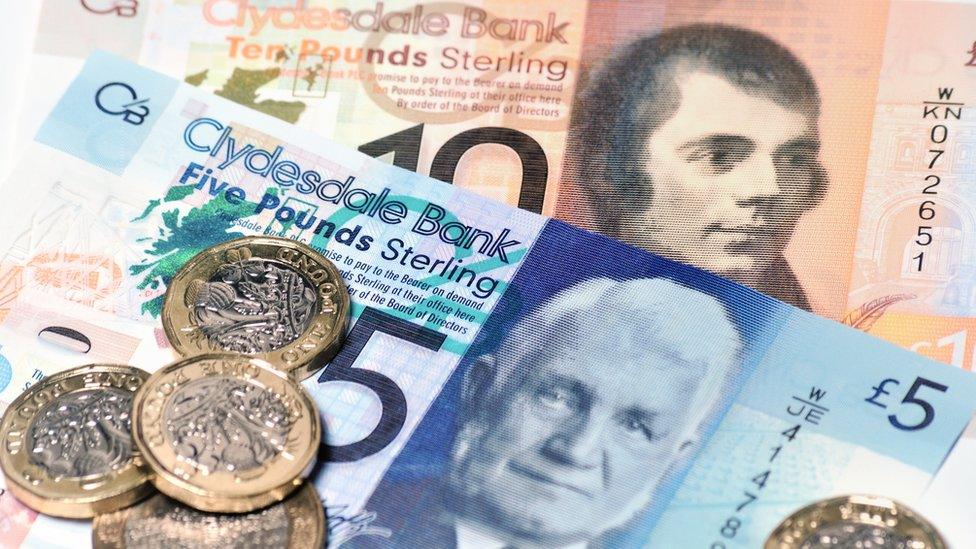
- Published17 October 2022
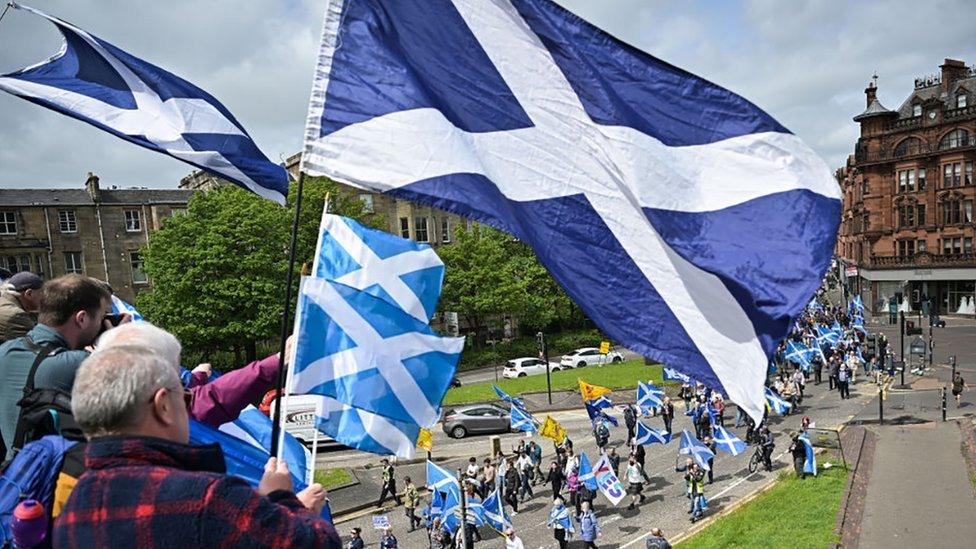
- Published16 October 2022
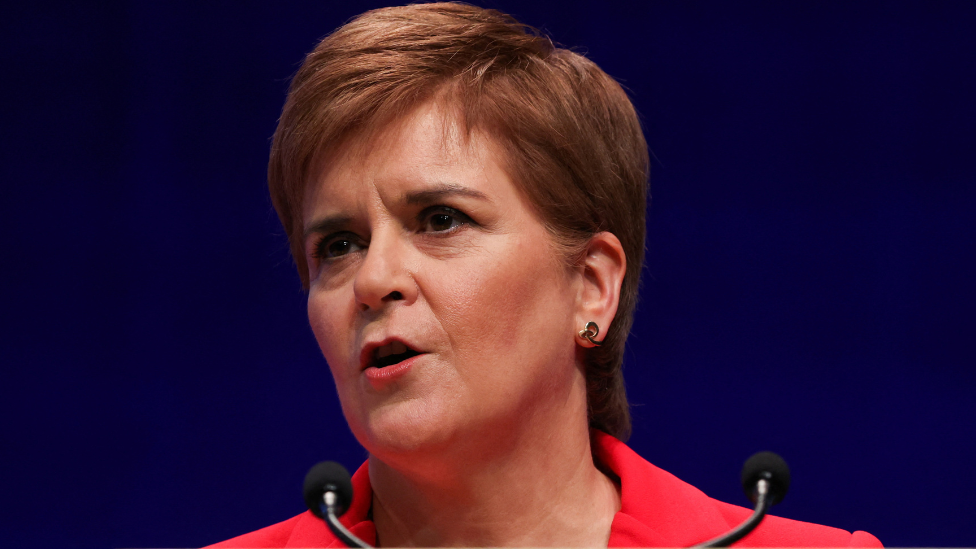
- Published11 October 2022
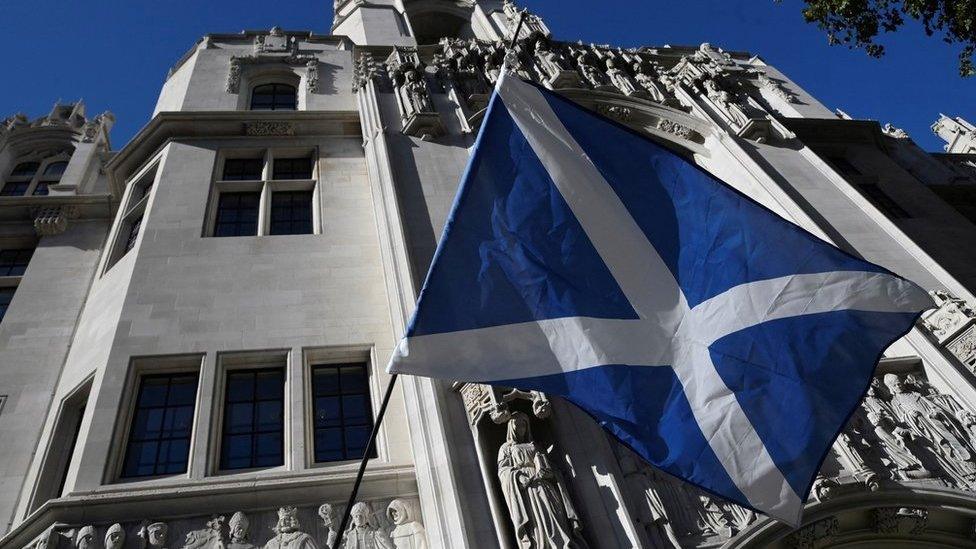
- Published10 October 2022
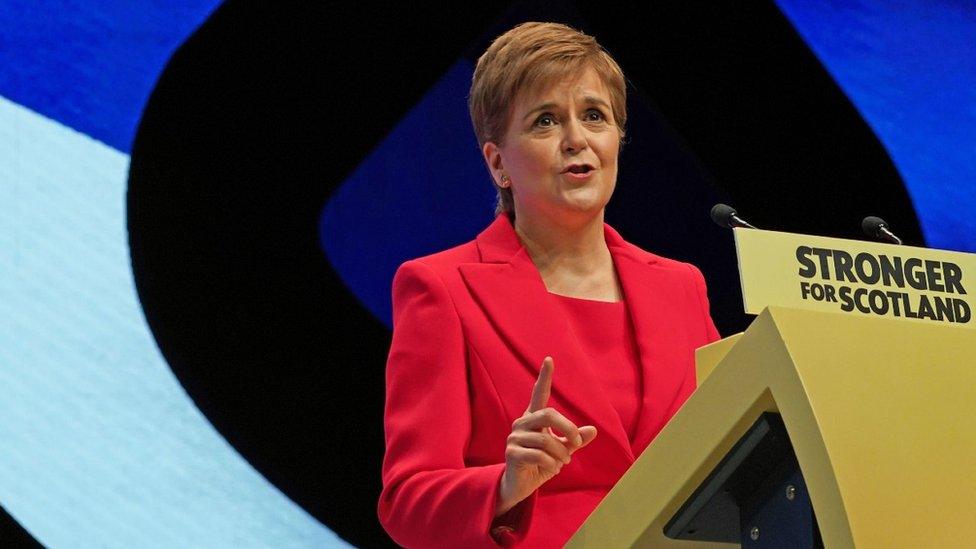
- Published14 June 2022

- Published24 June 2016
